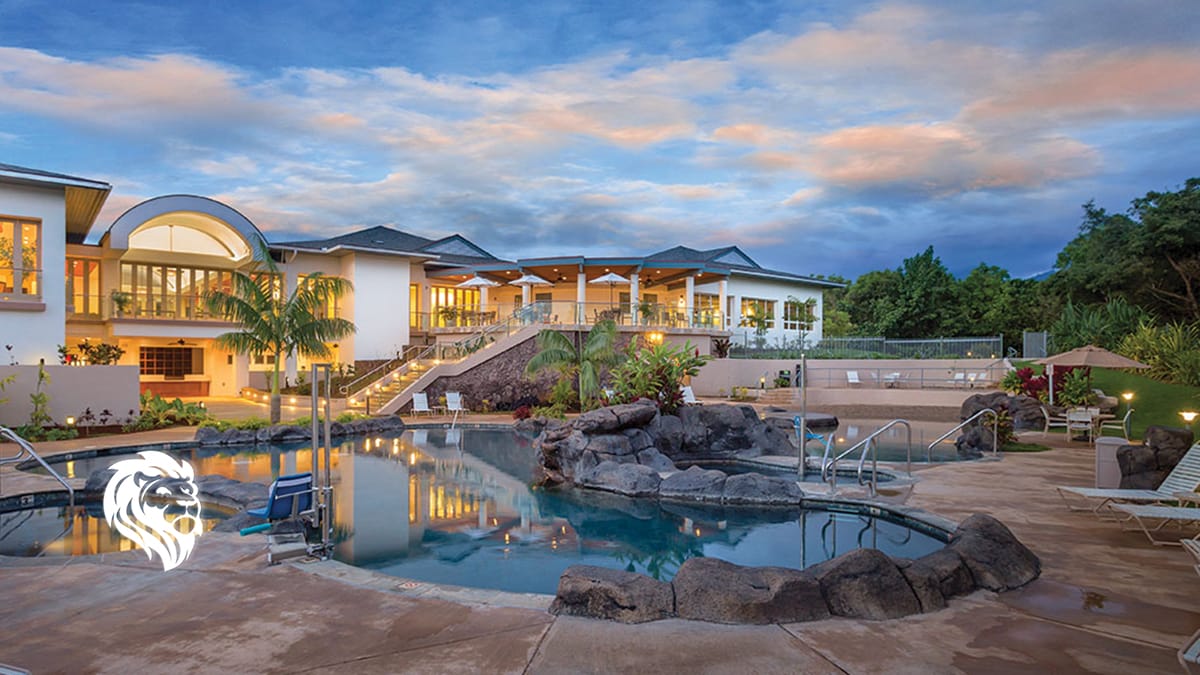If there comes a day that you don’t want your timeshare anymore, don’t fret; you have options. Many timeshare owners love their ownerships for the spacious accommodations, top-tier resort amenities, and beautiful resort destinations. However, if maintenance fees have piled up or your timeshare loan has become a burden, it may be time to consider your options. If you want to say goodbye to your timeshare unit without sketchy timeshare exit teams or hefty upfront fees, consider a timeshare deed-back program. A deed-back program is one of the safest and most effective ways to get your timeshare off of your hands. But how do you deed back timeshare? Let us walk you through this process, as well as offer you another alternative that can help put some money back in your pocket.
- What Is a Timeshare Deed-Back Program?
- The Shift from Deeded Ownership to Flexible Points Systems
- Alternatives to Timeshare Deed-Back Programs
- Should I Deed Back Timeshare or Sell My Timeshare?
- Sell Your Timeshare Ownership with Fidelity Real Estate
What Is a Timeshare Deed-Back Program?



A timeshare deed-back program releases your ownership by giving the deed for the timeshare back to the resort or developer. With this exit option, a timeshare owner can effectively terminate their ownership rights and obligations. However, not every timeshare company offers a deed-back program. So, you’ll want to confirm with your developer that they do. Please note that you are not paid for your ownership when using timeshare deed-back programs. The developer is not buying back your timeshare but simply releasing you from your contract.
If your timeshare company has a deed-back clause, gather as much documentation as possible, such as your timeshare contract, the original deed, the timeshare agreement, and any other relevant documents. Then, you’ll often need to submit a written request to the resort or resort management company to begin the deed-back process. This usually entails a letter explaining that you want to participate in the deed-back program, your special circumstances, and the documentation.
Before diving in, take the time to thoroughly review your timeshare contract and deed. Familiarize yourself with your rights and obligations as an owner, and pay close attention to any specific requirements or restrictions related to deed-back options. If you find language in your paperwork that’s unclear or if you’re uncertain about your eligibility, don’t hesitate to consult with a professional. This extra step can help you avoid misunderstandings and ensure you’re making an informed decision. Some known brands that offer deed-back services include Wyndham Destinations, Holiday Inn Club Vacations, and Hyatt Vacation Club.
Understanding Your Rights and Responsibilities as a Timeshare Owner
Before signing on the dotted line to become a timeshare owner, it’s crucial to fully grasp both your rights and responsibilities. Start by carefully reviewing every aspect of your contract and deed. This isn’t just a formality—knowing exactly what you’re agreeing to helps you avoid any unwelcome surprises down the road.
Keep a close eye on the following:
- Ownership Details: Double-check what type of ownership you’re purchasing—whether it’s deeded ownership, right-to-use, or a points-based system.
- Usage Rights: Clarify how often, when, and how you can use your timeshare week(s) or points.
- Fees and Financial Obligations: Understand all recurring charges like maintenance fees, special assessments, taxes, and any associated costs spelled out in your agreement.
- Transfer Restrictions: Some contracts have rules about transferring or selling your timeshare. Make sure you know if there are limitations or additional fees for transferring ownership.
- Cancellation Policies: Familiarize yourself with the rescission period (the timeframe where you can legally cancel your purchase without penalty). This is your escape hatch if you change your mind shortly after signing.
If you’re ever unclear about what something means—or if something feels off—don’t hesitate to consult a professional. Protecting yourself upfront can save you from headaches later, ensuring your timeshare experience is exactly what you signed up for.
Terms of Deed-Back Timeshare
You’ll also want to keep in mind that the terms and conditions to deed back timeshare may vary from company to company. Typically, you’ll want to be in good standing with your timeshare developer. This means being up to date on your maintenance fees and current on your mortgage payments. At the same time, some developers only accept deed-back timeshare if the owner is going through financial hardship. Moreover, some developers charge upfront payments or fees to receive a deed back timeshare. The developer also has the right to refuse the deed, even if you’re in good standing or the timeshare is paid off.
Key Takeaways:
- Requirements for deed-back eligibility can differ greatly between developers.
- Being current on payments and fees is usually a must.
- Some programs are limited to owners facing financial challenges.
- Fees may apply, and acceptance is never guaranteed—even for paid-off timeshares.
- The nature of your ownership (deeded vs. Points-based) can impact your options.
Understanding these nuances can help you better navigate the deed-back process and set realistic expectations for relinquishing your timeshare.
How Timeshare Deeds May Not Guarantee True Ownership
It’s important to approach timeshare deeds with a discerning eye. In some cases, you do not own genuine real estate ownership. Instead, some documents grant you the right to use a unit or a specific week, rather than assigning you any real property interest. Here, the ownership belongs to the developer, not you. Be sure to consider whether actually owning a property interest or just having the right to use it works for you.
Understanding the “Timeshare Developer’s Dilemma”
Though many resorts no longer rely solely on traditional deeds, there are still ongoing fees for owners to contribute to the upkeep of beautiful resort properties and units. Today, more properties use flexible ownership setups—think points-based systems, right-to-use agreements, or a mix of both, whether they’re deeded or not.
For owners, this means the connection between what you “own” and what you pay for can feel a bit blurred. You may not hold a physical deed like a homeowner, but you’re still responsible for maintenance fees and assessments. However, the developer must maintain resort operations and amenities at a high standard while also making these ongoing costs understandable and fair, no matter the structure of your ownership.
This is a key reason it’s important to clearly review your contract and any program details, whether your resort follows a deeded, points-based, or hybrid model.
The Shift from Deeded Ownership to Flexible Points Systems
When timeshares first hit the scene in the 1960s, purchasing one typically meant you actually owned a physical slice of the resort—often a specific week in a particular unit. Think of it as co-owning a vacation condo with dozens of your closest (and perhaps never-met) friends. You’d have a deed in your name and could pass your interest down, just like any other piece of property.
But as vacation preferences changed and travel became more accessible, so did the timeshare industry. Both buyers and developers started craving more flexibility, and it was clear that tying owners to a single week at a single resort was as outdated as shag carpeting. Enter the era of exchange companies like RCI and Interval International, which allowed timeshare owners to swap out their allocated time and location with other owners worldwide. This “mix and match” system gave timeshare vacations a much-needed upgrade.
To streamline these swaps, the industry soon introduced points-based systems. Instead of owning a fixed week, owners received points representing vacation time. The number of points you held determined when, where, and what kind of resort unit you could book—like trading up from a winter week in the Ozarks for a summer escape in Maui if your points allowed. This model lets vacationers tailor trips to their preferences each year, making timeshare ownership feel more personalized and modern.
What Does Timesharing Today Look Like?
Today, most major developers have fully embraced this approach. You’ll still come across terms like “home resort”—the original location associated with your timeshare purchase—which helps justify maintenance fees and establishes a base for your ownership. But, thanks to points, the average owner enjoys more choices than ever before, swapping dates and destinations as their travel needs evolve.
So, while timeshare ownership once resembled traditional real estate, it’s now a far more flexible arrangement—perfect for those who’d rather not vacation the same way every single year.
Alternatives to Timeshare Deed-Back Programs

So, what do you do if your timeshare developer doesn’t offer a timeshare deed-back program? And what if you would like to recoup some of the costs from your timeshare purchase? For those interested, there are alternatives to timeshare deed-back programs. Here are some of the most popular alternatives to these programs in the industry and how they stack up to deed a timeshare property back.
Gift the Timeshare to a Family Member
The majority of owners love their timeshares for a reason. From staying at luxurious timeshare resorts in stunning destinations to benefits like vacation exchange, the joy owners receive from timeshare vacations is priceless. That’s why timeshares make spectacular gifts, should you decide to say goodbye to ownership. If you no longer want your timeshare but think a family member might, you can gift it to them. Of course, the family member will become responsible for the maintenance fees and everything else that comes with being an owner. But if they value vacations as much as other owners, giving a loved one the gift of a timeshare is a viable alternative to a timeshare deed-back program.
Take Advantage of the Rescission Period
You should be aware of the rescission period if you recently purchased a timeshare. The recession period is a short window of time after purchasing your vacation ownership, during which you can legally cancel the contract agreement. Rescission laws vary from state to state, but typically, owners have three to fifteen days to cancel the ownership. After that period ends, timeshare sales are final. If you only just bought a timeshare at a resort and have decided you’ve made a mistake, act quickly. You may be able to get rid of that timeshare without having to pay a fee.
Avoid Timeshare Cancellation Companies
If you’re looking for alternatives to timeshare deed back, avoiding timeshare cancellation companies is in your best interest. You may have seen ads by timeshare exit companies that claim they can cancel your ownership. A timeshare exit team may advise you to stop paying your annual maintenance fees, claiming they will get you out of your contract. Most of the time, this does not work. These exit companies are usually made up of lawyers who will look for a loophole in your contract. These loopholes often don’t exist.
Similar to how you cannot simply “get out” of mortgage payments, you cannot simply “cancel” a timeshare. As a result, an exit company often does more harm than good. In fact, their advice, such as telling you not to pay maintenance fees, can lead to a dangerous financial situation or cause you to face foreclosure, which will damage your credit. Not to mention, they often charge steep upfront fees that get you nowhere in the end. If you’re a timeshare owner, consider whether this exit strategy is worth the risk.
Read more: What Happens When You Don’t Pay Timeshare Maintenance Fees?
The Timeshare Resale Market

If you can’t deed back timeshare to the resort, the resale market is an alternative. Timeshare resale companies, such as Fidelity Real Estate, allow timeshare owners to post a listing of their timeshare points or weeks for sale on their active marketplace. This way, you can actually put some money back in your pocket. If you’re looking for an exit strategy that is less likely to put you in a dangerous financial position, choosing to sell your timeshare may be right for you. With that said, there are a few things you’ll want to keep in mind when deciding to sell your timeshare instead of using the timeshare deed-back program.
Keep Your Expectations in Check When Selling Your Timeshare
First, timeshares are not a financial investment but a luxury item like a car. This means that while you can sell your timeshare, you likely won’t make all the money you spent on it back. The best way to think about timeshare sales is to compare them to selling a car. Cars are depreciating assets; once you buy one, it’s highly unlikely you’ll ever get back what you paid for it, and the same goes for timeshares. It’s important to keep your expectations in check for how much you sell your vacation property for. However, selling your ownership is an excellent alternative to a timeshare deed-back program if you want to say goodbye to annual fees and other financial obligations.
Not Just Anyone Can Help You Sell a Timeshare
In any situation, you need the right tool for the job, so your typical real estate agent can be very helpful, but they’re not always the best option. If you plan to sell your timeshare ownership, your best option would be a third-party company with licensed agents specializing in timeshare resales. Many timeshare resorts will even direct owners to these companies if they do not have a timeshare deed-back program in place. For most owners, working with a reputable resale company with experience in the timeshare industry is one of the best exit strategies to get rid of a timeshare.

If you want to know more about how Fidelity can help you with the resale process, check out our video: “How to Sell a Timeshare Without Any Upfront Fees.”
Should I Deed Back Timeshare or Sell My Timeshare?
Now that you’ve learned about all the options, you might wonder what the best way to move forward is. Well, it’s up to you! There’s no “right” way to move on from ownership. From timeshare deed-back programs to selling on the resale market, all have pros and cons. Ultimately, whether you’re dealing with financial hardship or are simply tired of yearly travel, only you can determine what’s best for you. We suggest contacting your developer to learn more about deed-back programs or scheduling a free consultation with one of Fidelity’s licensed real estate agents to discuss listing your ownership. Call 1-(800)-410-8326 to talk to one of our agents.
Sell Your Timeshare Ownership with Fidelity Real Estate

If you’re ready to safely and securely bid farewell to your ownership while putting some money back in your pocket, Fidelity Real Estate is here to help. We are a licensed real estate brokerage with over 20 years of experience in the timeshare industry. Even better, we charge zero upfront fees to list your ownership! As a member of ARDA and with an A+ rating by the Better Business Bureau, we follow a strict set of ethics that helps to keep everyone in the industry safe. This means that both timeshare companies and owners can trust that they’re in good hands when they work with us. Are you ready to get started? Then fill out the form below! If you have any questions, please call us at 1-800-410-8326 or email us at [email protected]. Our licensed agents are always happy to help!








